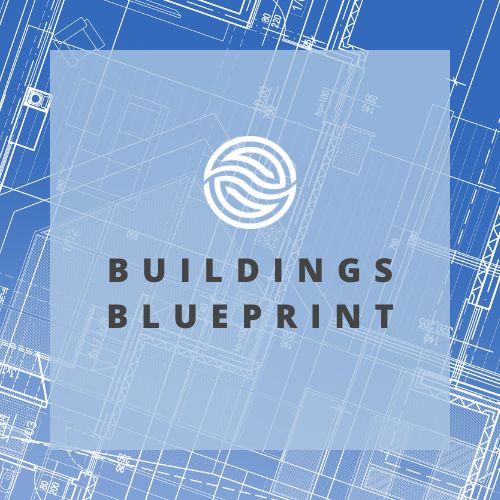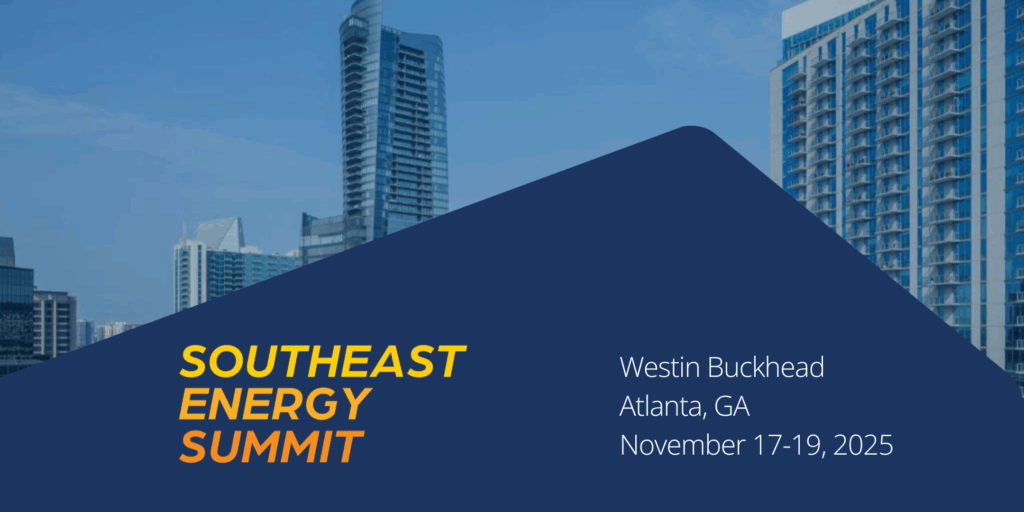Buildings Blueprint – 2nd Quarter

April – June 2025
Welcome to SEEA’s Buildings Blueprint, where we share updates and resources on energy codes and the built environment across the Southeast and U.S. Island territories.
Leadership Update at SEEA
We’re thrilled to welcome John Silkey as the new Executive Director of the Southeast Energy Efficiency Alliance, beginning July 7!
John brings more than a decade of experience in clean energy, sustainability, and organizational leadership, including past service as Chair of SEEA’s Board. His deep understanding of the region’s energy landscape and commitment to community-centered solutions make him a strong and visionary leader for SEEA’s next chapter. Welcome, John!
Read more in the press release below.
SEEA is Hiring: Senior Program Manager – Efficient Buildings
SEEA is seeking a passionate and experienced Senior Program Manager to lead clean energy initiatives across the Southeast. This role helps shape a more energy-efficient built environment by managing impactful programs, guiding cross-functional teams, and collaborating with stakeholders to advance equitable energy solutions.
Resources
Shape the Future of Energy Workforce Training!
SEEA is partnering with NREL on a national survey to better understand hiring and training in the residential energy workforce. Your feedback will help identify real challenges and opportunities, shaping strategies that will strengthen our industry!
The 10-minute survey is open to contractors and professionals working on residential energy performance improvements, including single-family homes, manufactured housing, and multifamily buildings. Your input can drive change!
Click below to complete the survey:
Regional News
Atlanta’s Cool New Cool Roof Rule
The City of Atlanta has adopted a new policy requiring all new and replacement roofs (both residential and commercial) to use “cool roof” materials, such as light-colored or reflective surfaces designed to reflect more sunlight and absorb less heat than traditional roofing. According to Grist, this shift is projected to lower average summer temperatures by 2.4°F citywide, and up to 6.3°F in the city’s hottest neighborhoods. Over time, the policy could result in $310 million in energy savings over the next 35 years.
Cool roofs are a simple yet high-impact solution that reduces heat absorption, lowers indoor temperatures and cooling needs, and improves overall thermal comfort – especially important in the Southeast, where extreme heat is already a public health concern. By integrating this requirement into its building code, Atlanta is taking a step towards advancing a vision for a resilient, energy-efficient future, while also supporting long-term affordability and high-quality development. To learn more, click the link below.
Building Better in Birmingham: Investing in Homes That Last
The City of Birmingham, in partnership with GROWTH Homes, has launched a $16.6 million initiative to build 52 affordable, energy-efficient homes in Pratt City’s Shadow Brook subdivision, with additional construction planned in the Oak Hill and Woodlawn neighborhoods. These homes will follow high-performance construction practices to reduce energy costs, enhance comfort, and support long-term housing quality.
This effort contributes to Mayor Woodfin’s goal of creating 2,500 new units of affordable housing and includes funding for home repairs and upgrades in existing residences to preserve the local building stock quality. To learn more, click the link below.
Meta’s Mega Data Center Raises Energy Questions in Louisiana
Meta has begun construction on a $10 billion, 4-million-square-foot AI data center in Richland Parish, Louisiana, its largest investment to date. Expected to consume more than twice the electricity used by the city of New Orleans on a peak day, the facility will require major infrastructure support, including three new natural gas power plants proposed by local utility Entergy Louisiana.
While the project is projected to create 5,000 construction jobs and 500 permanent positions, it has sparked debate over long-term costs, grid reliability, and public investment. A new 20-year sales tax exemption for data centers built before 2029 could cost Louisiana tens of millions annually through 2059. To learn more, click the link below.
Powering Up: Alabama Invests in Energy Efficiency Upgrades
Alabama Governor Kay Ivey has awarded nearly $700,000 in grants through the State Energy Program to support energy efficiency upgrades at public and nonprofit facilities across the state. The funding will go toward improvements like LED lighting, HVAC systems, and upgraded wastewater equipment, helping lower energy use and reduce operational costs.
Grant recipients include county offices, municipal utilities, healthcare centers, and the Alabama Shakespeare Festival, with a broad commitment to improving building quality throughout both urban and rural communities. To learn more, click the link below.
All Aboard: Rail Service Returns to Southwest Virginia After Nearly 50 Years
On April 24, 2025, Virginia Governor Glenn Youngkin joined Amtrak and local leaders in Christiansburg, Virginia, to break ground on the New River Valley Rail Project, marking the return of passenger rail service to the region for the first time since 1979. The $264.5 million project includes rail upgrades, a new platform with canopy, parking, and improved signaling infrastructure.
Renovation of Christiansburg’s historic Cambria Station is set to begin in 2027, when Amtrak Virginia will launch two daily roundtrips to Washington, D.C., with stops in Roanoke, Lynchburg, Charlottesville, and beyond. The project is expected to improve regional connectivity, ease congestion along the I-81 corridor, and provide lower-emission travel options. To learn more, click the link below.
What SEEA Staff is Reading
From Headlines to Housing: Folio House Revives a Historic Atlanta Landmark
A historic office building in downtown Atlanta is set to receive a $110 million transformation into Folio House, a mixed-use development led by Gorman & Co. with design by Gensler. Formerly home to the Atlanta Constitution, and later Georgia Power’s Atlanta Division, the building will be thoughtfully restored to include 50 affordable housing units and ground-floor retail, with residences reserved for households earning 30–80% of the area median income. Plans also include shared community space and design elements that honor the building’s historic character with the necessities of contemporary city life.
The upgrades will include lead abatement, structural repairs, and energy-efficient equipment upgrades, breathing new life into an unused structure through a climate- and community-responsive design. Ahead of the 2026 FIFA World Cup, Folio House reflects the city’s broader movement toward reuse over demolition and community-centered development within the existing city landscape. To learn more, click the link below.
Setting the Standard: Alabama Builder Commits to 100% ENERGY STAR Homes
Stone Martin Builders, an Alabama-based residential homebuilder, has committed to constructing more than 800 ENERGY STAR-certified homes across Alabama. These homes are designed for energy efficiency, comfort, and performance, while saving homeowners at least 10% on their utility bills, compared to homes built to the minimum code requirements. To learn more, click the link below
Green Goals, Gold Standards: Emory’s New LEED Gold Housing Breaks Ground
Emory University’s newest graduate student housing, The Ridge, has earned LEED Gold certification, adding to the university’s growing portfolio of high-performance buildings. The project is expected to deliver significant energy and water savings: reducing energy use by 26% and water consumption by 36% compared to a standard building. The project includes a stormwater management feature alongside health-conscious design elements like indoor humidity controls and low-emissions materials.
This milestone brings Emory past 4 million square feet of certified space and advances its institutional goals of cutting greenhouse gas emissions 50% by 2030 (measuring from a 2010 baseline) and achieving net-zero by 2050. The Ridge offers a strong example of how campuses across the Southeast can integrate energy efficiency and high-performance design into student housing. To learn more, click the link below.
Townhomes Lead a Shift Toward Efficient City Living
According to Builder magazine, townhomes are gaining renewed attention in 2025 as a more energy- and space-efficient alternative to single-family homes. Builders across the Southeast are offering townhomes in walkable, mixed-use neighborhoods with smaller footprints and shared infrastructure. The proportion of new construction starts that are townhomes, has not been this high since 2008, according to the National Association of Home Builders (NAHB).
These homes are especially attractive to first-time buyers, retirees, and professionals seeking long-term affordability and low-maintenance living. As housing demand increases, townhomes are helping reshape residential development in the Southeast. To learn more, click the link below.
Events
Sharpen Your Skills with Southface Training
Ready to level up your building science expertise? Southface Institute has several upcoming informational sessions and training courses:
📅 Sept 18 – 16 Best Practices for Sustainable O&M (Virtual)
📅 Sept 30 – EarthCraft Builder Training (In-Person, Atlanta)
📅 Oct 13 – ENERGY STAR Certified Homes Info Session (Virtual)
📅 Dec 9–10 – ENERGY STAR Certified Homes Training (Virtual)
Explore the full schedule and register at the link below.

2025 Southeast Energy Summit
📍 November 17–19, Atlanta, GA
The Southeast Energy Summit returns this fall, bringing together energy leaders, innovators, and changemakers from across the region. Hosted at the Westin Buckhead in Atlanta, this three-day event is your chance to dive into dynamic discussions, celebrate progress in energy efficiency, and make meaningful connections through curated networking events.
Registration is officially open! Lock in your spot now and enjoy discounted early bird rates—available for a limited time.
Want to be a sponsor or exhibitor? Reach out to info@seealliance.org to get involved.
Mark your calendar, and we’ll see you in November!
Click the link below to learn more about the event.
Thank you for reading!
Have questions or want to collaborate with SEEA staff? Want something shared in our next Buildings Blueprint?
Subscribe to the building’s newsletter here.

